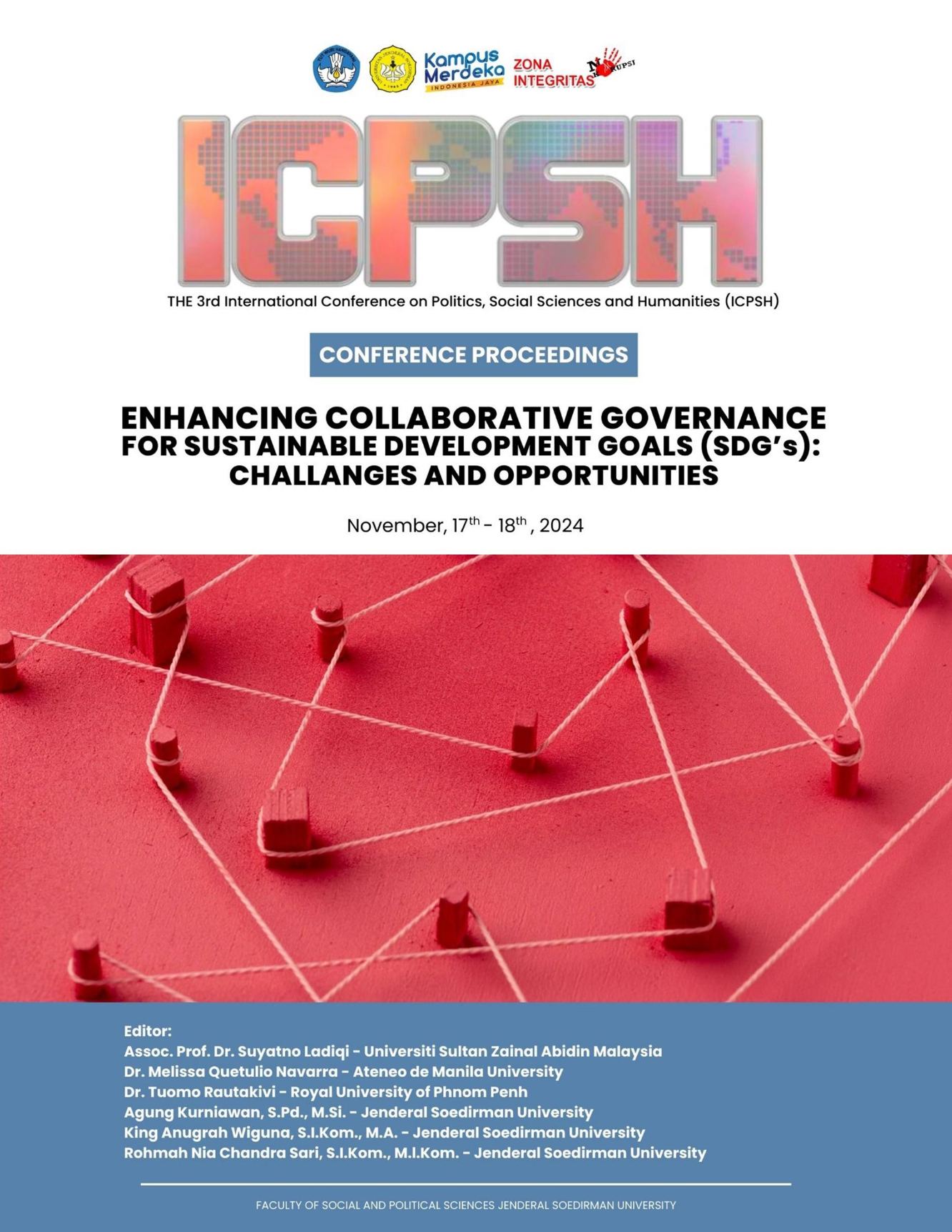Connecting Actors and Policy Flows in Collaborative Governance
An Application of Multiple Stream Theory to Sustainable Development
Abstract
The pursuit of sustainable development is inherently complex, necessitating a governance model
that fosters collaboration among various stakeholders across different sectors. This research
utilizes Howlett's Multiple Stream framework to explore how the alignment of policy streams—
problems, politics, and solutions—can be achieved through collaborative governance strategies.
The study emphasizes the interactions between key actors, such as government entities, civil
society, and private sector participants, in formulating policies that advance sustainability
objectives. The core issue addressed in the research is the difficulty of harmonizing diverse
interests and viewpoints within the policy-making process, where fragmented efforts often
disrupt effective collaboration. By employing a qualitative approach, the study investigates case
studies from Indonesian sustainable development projects, focusing on how various stakeholders
engage in policy processes, recognize opportunities for action, and utilize policy streams to
influence both agenda-setting and implementation. The study's findings indicate that for
collaborative governance in sustainable development to succeed, there must be effective
synchronization of efforts across the three policy streams. The combination of political
commitment, accurate problem identification, and practical solutions is critical for fostering
collaboration. However, there are ongoing challenges in ensuring sustained engagement of
stakeholders throughout the policy process, especially as political contexts evolve. This research
enhances the understanding of collaborative governance by showing that the Multiple Stream
framework is an effective tool for analyzing and optimizing policy processes within the realm of
sustainable development.



